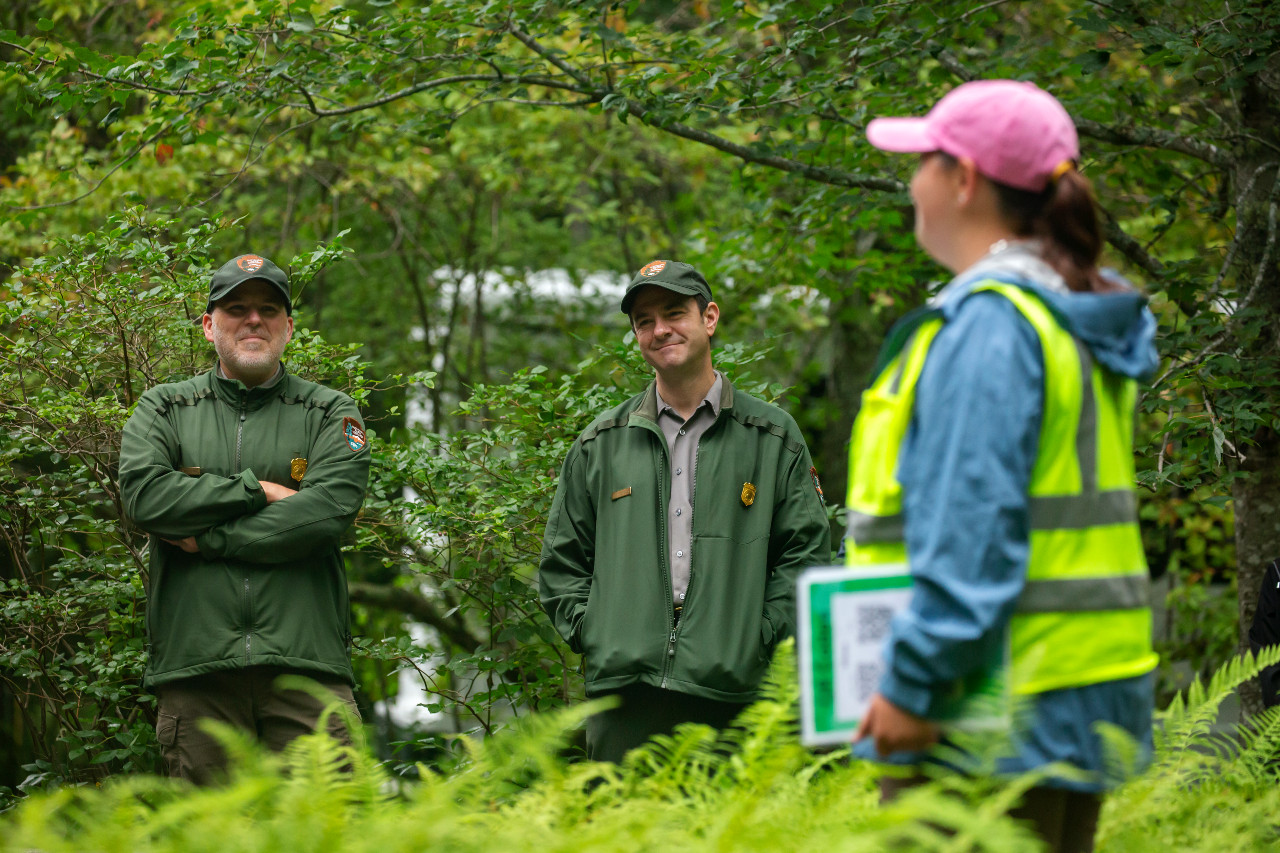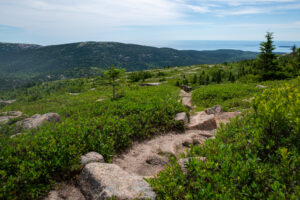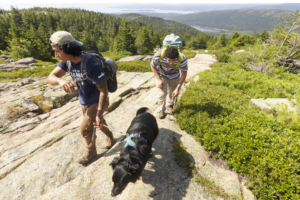
Dr. Abe Miller Rushing, Science Advisor, Acadia National Park (left), and Kevin Schneider, Superintendent at Acadia National Park, listen to Shannon O’Brien, Schoodic Institute technician, talk with U.S. House of Representatives and members of the media during a Sustainable Energy and Environment Coalition in September 2021. (Photo by Ashley L. Conti/Friends of Acadia)
The impacts of climate change on America’s National Parks – and how we should or shouldn’t respond to those changes – has rightfully become a topic of conversation for park managers.
Park management has historically focused on preservation – maintaining the natural heritage of the land and looking to the past for advisement on present-day decisions. But as ecosystems continue to shift in the face of climate change, that approach grew untenable.
“We weren’t being trained on how to manage for change,” Dr. Abe Miller Rushing, Science Advisor at Acadia National Park, told the New York Times in 2021. “We were being trained on how to keep things like they were in the past.”
Dr. Miller Rushing is one of the scientists who helped bring forward a new framework for managing natural resources at our national parks and beyond. It’s called Resist-Accept-Direct (RAD): A Framework for the 21st-century Natural Resource Manager.
This work has also helped Acadia National Park become a recognized leader in climate-smart science.
Miller Rushing is quoted in the New York Times article: What to Save? Climate Change Forces Brutal Choices at National Parks. He was also interviewed on WBUR’s On Point program: What Climate Change Means For America’s National Parks
Read the full New York Times story: What to Save? Climate Change Forces Brutal Choices at National Parks.
Listen to the On Point interview: What Climate Change Means For America’s National Parks
More coverage:
 Join
Join Donate
Donate Acadia National Park
Acadia National Park


